Hydrogen fuel cell electric vehicles, or FCEVs, could be the next generation of electric transportation. But how do they compare to today’s battery electric vehicles (EVs) on range, refueling time, and availability? We take a look.
Similarities & differences
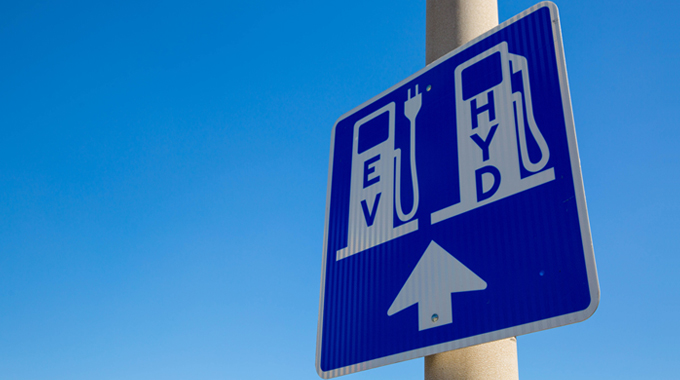
First, the similarities. Both battery electric and fuel cell vehicles use electric motors instead of gasoline- or diesel-powered internal combustion engines for propulsion. And because neither EVs nor FCEVs consume fossil fuel, both are zero-emission vehicles. Another benefit is that they require less maintenance.
The differences? While both battery electric and fuel cell vehicles are powered by electricity, the source of the electricity is fundamentally different. An EV uses energy stored in a rechargeable battery pack. When it’s depleted, it must be recharged from the power grid, either from a wall socket or a dedicated charging unit.
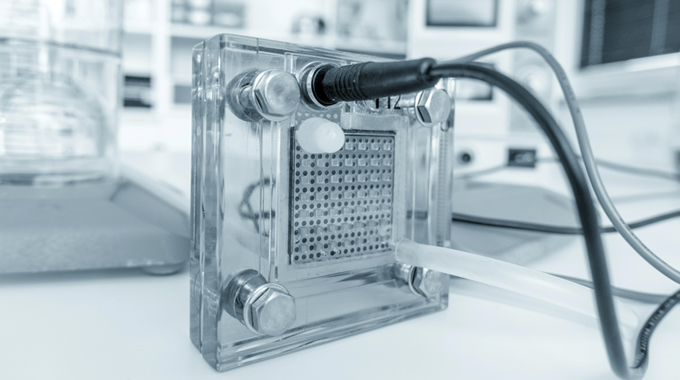
By contrast, FCEVs produce their own electricity. Hydrogen fuel stored in an onboard fuel tank is fed into a fuel-cell stack. Air combines with the hydrogen fuel and a chemical reaction takes place, generating electricity, which is directed to an electric motor that propels the vehicle. No harmful greenhouse gases or pollutants are released—only heat and water.
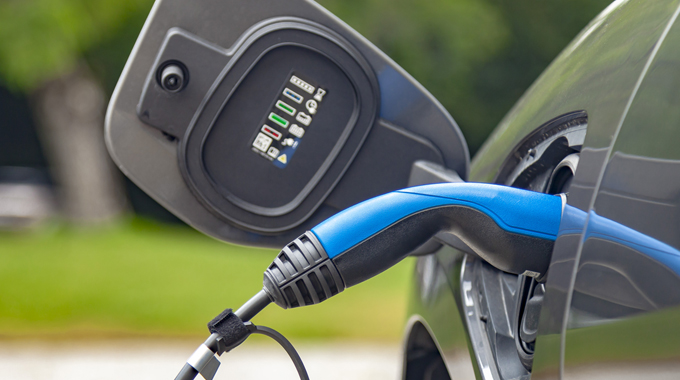
Battery electric and fuel cell vehicles also differ in range and how long they take to refuel. Most EVs have ranges of about 75-110 miles, well within the daily drive distances of most Americans. (Tesla’s Model S and Model X, and Chevy’s Bolt, are exceptions at about 200-300 miles.)
Typical EV charge times from empty are as rapid as a half-hour for an 80% charge on a DC quick charger, about 7-10 hours for a full charge on a 240-volt line, and up to 24 hours on 120 volts. In practice, however, many drivers find that they only need to charge long enough to replace the distance driven that day, which can significantly reduce charging times.
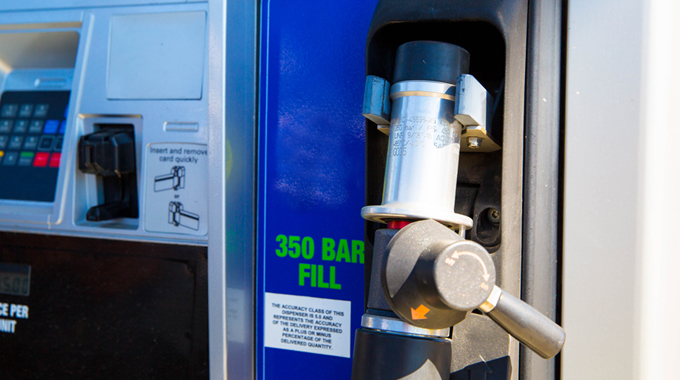
By contrast, today’s FCEVs have ranges of 250-300 miles and refill times of 5-10 minutes, comparable to gasoline vehicles. But to gain widespread acceptance, fuel cell vehicles will require hydrogen fueling infrastructure. A few dozen such facilities are operational, with most in California and the East Coast, and more are in the works.
In comparison, there are more than 35,000 existing public charging outlets nationwide, with many more coming online daily. Plus, most battery electric vehicle owners use home and work outlets.
| EV pros |
|---|
| Proven technology |
| Home charging |
| Established charger networks in some states |
| Low cost of electricity |
| Batteries are becoming cheaper |
| EV cons |
|---|
| Limited range |
| Long recharging times |
| Range shortened by accessory use and extreme temperatures |
| Range decreases as battery ages |
| FCEV pros |
|---|
| Range of about 300 miles, comparable to gas vehicles |
| Quick refill time (5 to 10 minutes) |
| Range less affected by extreme temperatures |
| Hydrogen fuel is currently subsidized |
| FCEV cons |
|---|
| Limited availability of hydrogen fuel |
| Unclear future for hydrogen fueling infrastructure |
| Unsubsidized fuel cost unknown |
| Home refueling unlikely |
| System longevity not yet tested |
Barriers to widespread adoption
Fuel cell vehicles on the road today
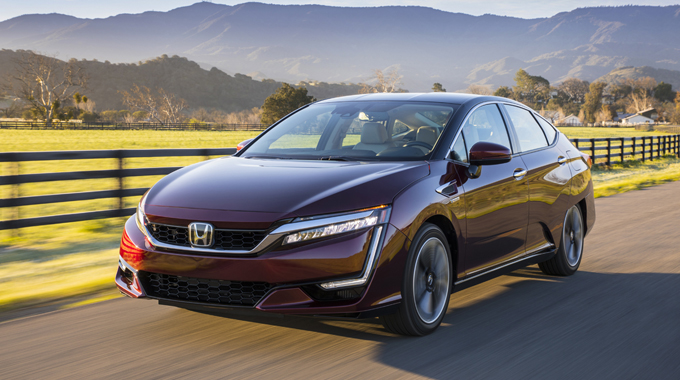
The Honda Clarity sedan is the most recent fuel cell vehicle available to the public. Sold and leased only in California, it was introduced in late 2016. The Clarity produces 174 horsepower, similar to an economical gasoline-powered sedan. It has an EPA-estimated range of about 366 miles, and a 68 MPGe (miles per gallon equivalent) rating.
Honda offers the Clarity on a 36-month lease with 20,000 miles per year for $369 per month with $2,499 down, and includes $15,000 worth of free hydrogen fuel.
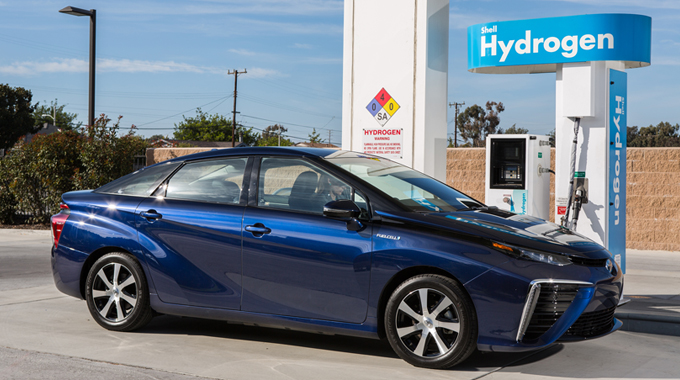
In 2015, Toyota introduced its fuel-cell Mirai sedan. It produces 153 horsepower and has an EPA-estimated range of about 312 miles, and a 63 MPGe (miles per gallon equivalent) rating.
The Mirai can be leased for $499 per month for 36 months. Similar to Honda's lease deal, Toyota provides customers with free hydrogen fuel for 3 years. By mid-August 2016, Toyota had sold or leased just over 400 Mirais.
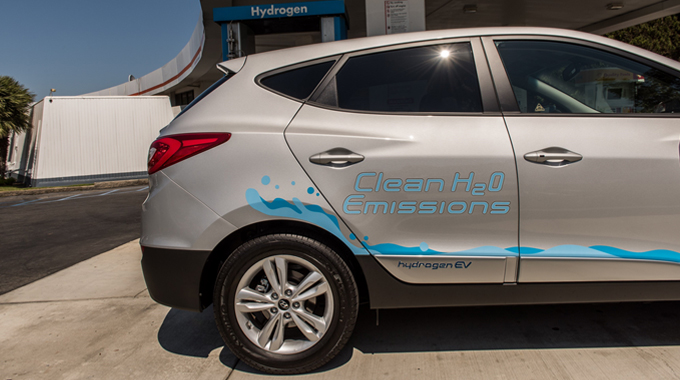
The oldest fuel-cell vehicle on the market is currently Hyundai's fuel-cell version of its Tucson crossover, available for lease only to California residents. It was introduced in mid-2014, and the company has produced about 60 per year. The Tucson makes 134 horsepower with a range of 265 miles, and Hyundai leases them for $499 a month for 36 months and $2,999 down. The lease includes the cost of all hydrogen fuel.
EV and FCEV models compared
Want to compare more green cars?
The annual AAA Car Guide is a detailed guidebook to vehicles including fuel-efficient gas vehicles, along with electric, hybrid, diesel, and alternative-fueled vehicles. It also provides real-world evaluations of the vehicles to help you determine which car might best suit your lifestyle.

